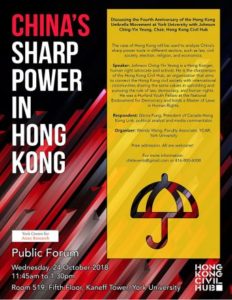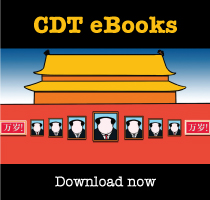 The ongoing protests in Hong Kong, and the Chinese government response, influenced Taiwanese voters to deliver a sharp rebuke to Beijing and President Tsai’s defense of Taiwan’s autonomy, according to The Wall Street Journal’s Chun Han Wong and William Kazer (HT: China Digital Times):
The ongoing protests in Hong Kong, and the Chinese government response, influenced Taiwanese voters to deliver a sharp rebuke to Beijing and President Tsai’s defense of Taiwan’s autonomy, according to The Wall Street Journal’s Chun Han Wong and William Kazer (HT: China Digital Times):
Opinion polls suggest that Ms. Tsai’s decisive win stemmed in large part from widespread sympathies for anti-Beijing protesters in Hong Kong, which energized Taiwanese opposition against China’s efforts to cajole and coerce the self-ruled island into accepting unification with the mainland.
Beijing has maintained an implacable face over the result. Its Taiwan Affairs Office reiterated China’s commitment to applying to Taiwan the “one country, two systems” formula currently used to govern Hong Kong as a semi-autonomous territory—even though protests there against Beijing’s growing influence have energized Taiwanese opposition to the proposal.
 The global head of Human Rights Watch was denied entry on Sunday to Hong Kong, where he was scheduled to launch the organization’s latest world report this week, Reuters reports. The report’s lead essay is expected to highlight the Chinese government’s intensifying assault on the international human rights system.
The global head of Human Rights Watch was denied entry on Sunday to Hong Kong, where he was scheduled to launch the organization’s latest world report this week, Reuters reports. The report’s lead essay is expected to highlight the Chinese government’s intensifying assault on the international human rights system.
Beijing’s move to bar Kenneth Roth follows China’s pledge last month to sanction organizations that it said “performed badly” in relation to anti-government protests that have roiled Hong Kong for more than seven months. Human Rights Watch, the National Endowment for Democracy and Freedom House were among the groups cited for sanctions, The New York Times adds.







